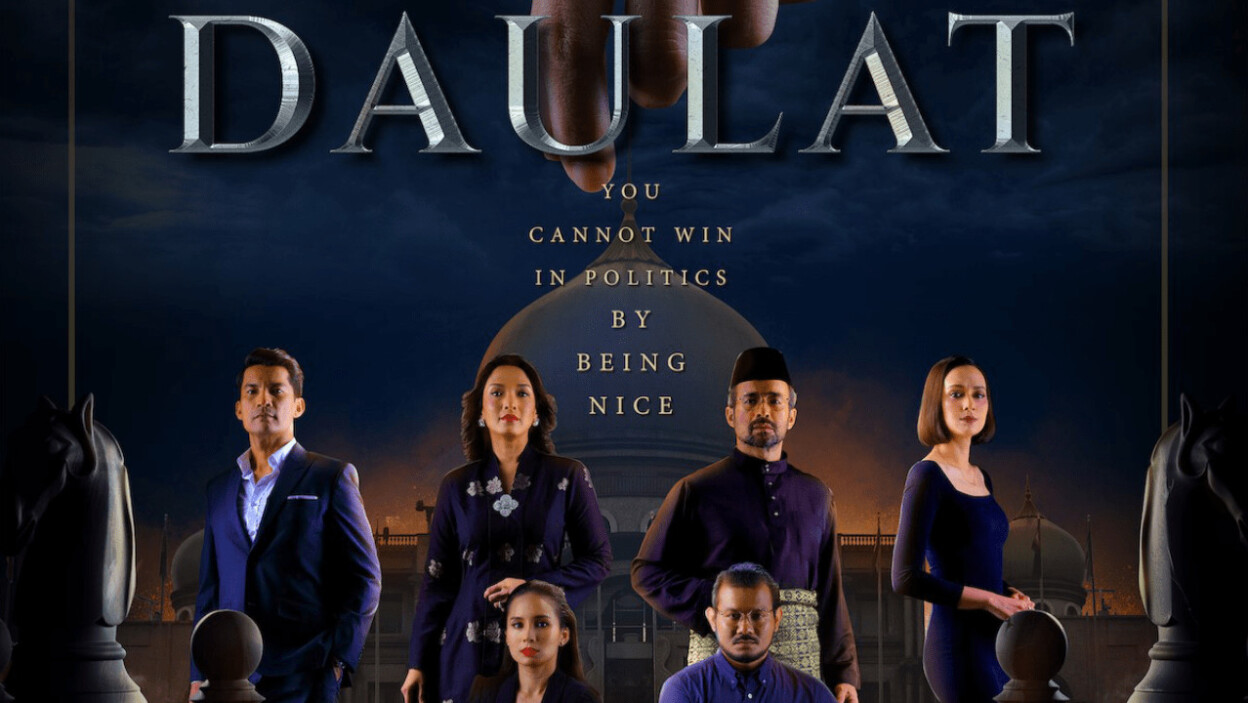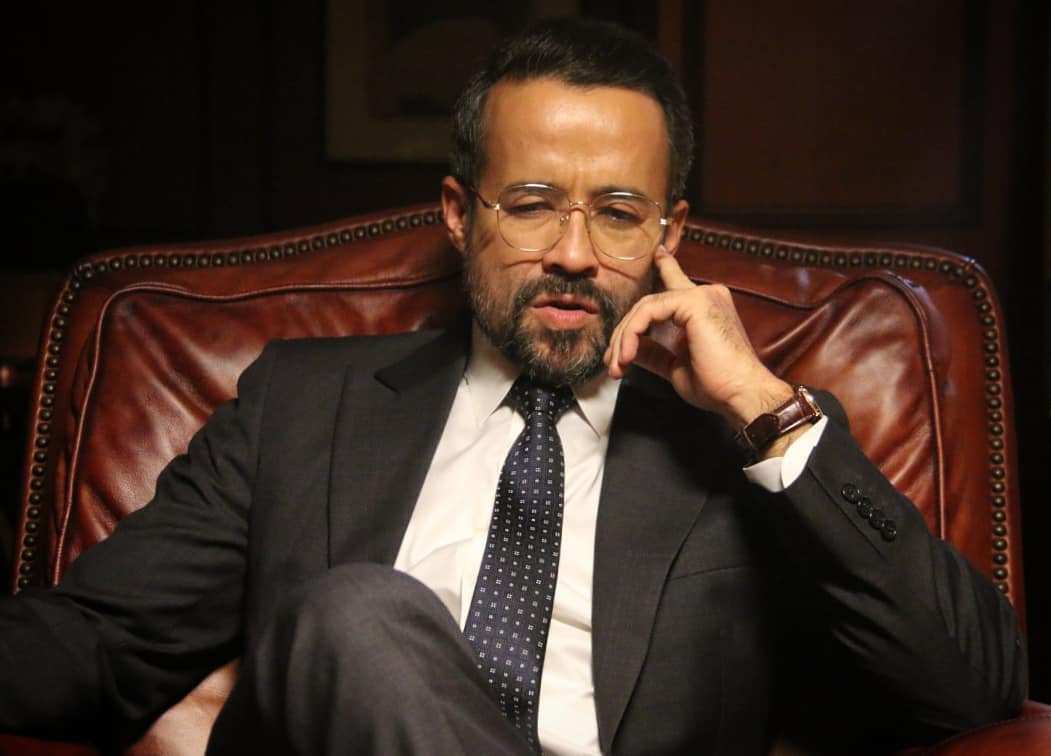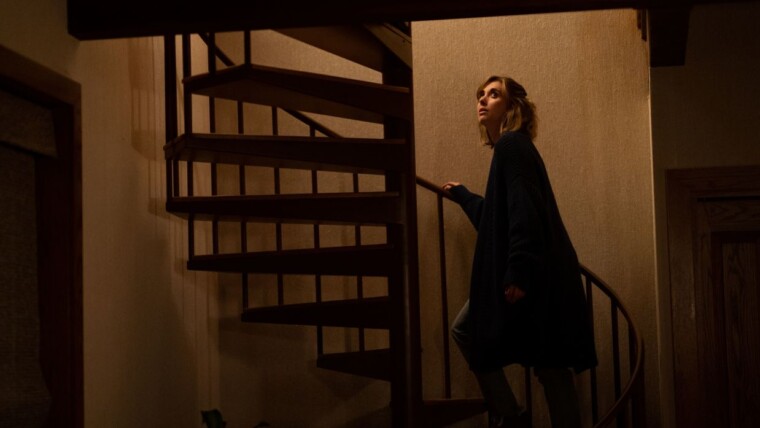This review of Daulat contains minor spoilers…
Daulat: 1 happy; happiness (relating to the kings in authority) 2 true; yes (used in compliance with the command of the king) 3 power (kings, government).
I’m not one to pursue political discussions. I tend to shy away from such talk or criticisms in public, save for the one or two outright bonkers statements or decisions made by politicians, to which I would gladly chime in on the fun. I mean, if the subsequently ensuing memes are good, I guess why not? Nevertheless, I do have to admit that any rumours, developments or revelations within the Malaysian political realm do make good dramatic material. There is a treasure chest of lemony-twists, apparent betrayals, UNO reverse cards, and a whole lot of scandals to create zesty narratives for a blockbuster thriller.
Of course, it would be a shame if our local talent did not tap into this well of resources considering the potential gold to be crafted based on such happenings. Thankfully, a few films have attempted to adapt these series of events, which includes last year’s documentary, M for Malaysia. Now, in 2020, a new political thriller has entered the fray.
Daulat is filmmaker Imran Sheik’s feature-length debut under the banner of Lacuna Pictures. The film was initially planned to be released in cinemas but had to opt-out of the theatrical market due to the political crisis that ensued in February. Not wanting to succumb to the chippity-chopped shenanigans of the censorship board, the production team decided to release the feature in its entirety on the streaming service, iflix, for free! (Salute*)
The film opens with the swearing-in of Tun Malik (Jalaluddin Hassan) as the prime minister of Malaysia after his political party, WAWASAN, emerges victorious in the general elections. The formality and grandeur are then juxtaposed with two individuals from the opposing party, MUNA, observing the event through a digital window, the bright screen providing light as they lick their wounds and ponder what went wrong. MUNA’s president, Hassan (Tony Eusoff), and his deputy, Suri (Vanidah Imran), then devise a strategy to snatch back the power that they had held for 50 years. In their quest for political control, a three-step plan is broken down. Can MUNA succeed in winning the hearts of the public yet again and usurp their competitors in the next general election?
Daulat is very much inspired by real-world political events, namely the 2018 general election that shook our nation. Despite the denials of its non-fictional status at the very beginning, the motion picture itself is an allegory for the episodes that transpired after Pakatan Harapan’s historic triumph right up to the political turmoil that befell our country recently. Do take note, nevertheless, that this was filmed in 2019. So, if anything, Imran Sheik has accomplished a Simpsons and glanced into the future through his art.
At first sight, Sheik’s film sticks to the script, a corrupted ex-government counting their losses and rebuilding public trust while undermining the ruling party’s manifestos and policies within polemics. Familiar, right? The film is, indeed, chock full with references to our nation’s political undertakings. The main characters overtly borrow their characteristics from the figures that have long resided within our nation’s rule, taking almost every chance it gets to allude to their actions. Believe me, that “bosskur” catchphrase even gets a shout-out within this film!
However, even with all of the references to real-life events, the feature does perch itself on the ideological fence. At heart, it is not meant to showcase the supremacy of any individual or party. Rather, it centralises the ideologies that tend to manifest within the ruling community. Their outlook, what they feel, how they think… For, in the end, politicians at their core, are human. And that’s what this film is about: mankind and their never-ending lust for power.
As far as performances go, Vanidah Imran is by far the most commanding presence in Daulat. It is the authority at which she executes her plans that makes her such a compelling watch. The character of Suri is tough, firm, and fierce. She is a master at analysing her opponents and confronting norms that it can be frightening to witness an immovable object lunge with such force.
‘Machiavellian.’
Truly, that is the ideal term to describe her. At one point during the film, Suri is at the foot of the Italian Renaissance diplomat’s portrait. She worships his ideologies, placing her faith in scheming and plotting to get what she wants. Her ability to manipulate the game along with her undying will makes her one of the game’s ultimate survivors.
Tony Eusoff is pretty darn good as Hassan Banna and serves as a genuine element of conflict with Suri. His character is the antithesis to his own deputy, but he is also a survivor. Instead of adapting to the circumstances, he elects to go down a straight path. The old-fashioned systems had worked for him, and he is unwilling to let go of that to pursue a method which he deems would destabilize MUNA, and to a certain extent, his integrity.
The rest of the main cast do decent jobs in their roles as well. Jasmine Suraya Chin stars as a budding journalist playing off on her relationship with Rashidi Ishak’s Idrus, who is the CEO of a major media company. In line with the theme of the film, these personalities are blinded by a lust for authority as well, as their actions knock off a long downward spiral for the pair. As for Jalaluddin Hassan, his screen time is very limited even though he IS the president of the opposing political party. However, when he does come on screen, he makes sure he does so with authority and provides some gravity to the situation.
Nonetheless, if I have one true grievance with regard to the performances, it would have to be the obligatory comic-relief that tends to plague a majority of our local films with serious tones. Remember that phone call sequence in Adrian Teh’s Wira? That absolutely did not work for me as it was out of place. Similarly, instead of being a moment of levity in Daulat, the supposedly comedic scenes simply came off as cringy and awkward. Fortunately, it was not prolonged as that would have zoned me out from the experience entirely.
The narrative is decently entertaining for the most part with a key focus on debating the beliefs held tight by these personalities. Which one is right? Which one will prevail? The struggle to find a common ground between these stances piles on the conflict. Furthermore, the scandalous deeds lead to some inner demons which then heads to some devastating and ruthless chain reactions. For the most part, the film does hold itself well enough to push toward a pleasing conclusion.
However, the film does utilise a monologue as a footnote and it is this very element that I thought was unnecessary. Breaking the 4th wall to address the audience directly, it felt very on-the-nose. It insults the audience’s intelligence to draw conclusions for themselves. Yes, Daulat barrages us with philosophical statements but I think we have come to a point where we can sit down and ponder upon it in order to grasp what the movie is telling us. The penultimate scene itself was pretty good, so the addition of an explanatory monologue did throw me off.
The pacing, while consistent within the first half of the movie, takes a dip in the events leading to the climax whereby the narrative feels rushed. The segments in question could have been stretched out to provide more impact, as the slicing and dicing of alternating scenes can feel jolting, or even anticlimactic. Such is the case with the resolution of one of the major character’s arcs. Having spent some time getting to know the character’s drive and inner conflict, it feels as though the screenwriters did not know what else to do with the arc. As such, the character is unceremoniously tossed aside during one of the aforementioned spliced scenes. It left a gaping plot hole which could have been handled much better.
Furthermore, the musical choices that are made toward the end also feel hasty. During the first half, it does an adequate job of adding to the overall atmosphere. However, the abrupt inserts of an orchestral score during several key scenes at the end make it feel like I was watching a 7 pm low budget television drama rather than a feature film. Yes, having musical cues that leap out are sometimes necessary as they create tension, but there should be a build-up to such rather than utilising the entire string library whenever peril occurs.
From a cinematic perspective, Daulat flaunts a certain visual flair, utilising several key pieces of imagery to full effect within the narrative. Its shots complement the overall scheming and guile of the film. From dimly lit taverns to the hellish red lighting, the atmosphere reeks of menace. Indeed, the camera work pulls no punches, driving the thematic nail into the wall with ease.
For someone who has the bare minimum of an interest in politics, I found Daulat to be reasonably entertaining. It never lets up on the manipulative vibe it has, making sure that the audience acknowledges the dirt these characters possess and the potential it has of being worked against them. Moments of brilliance are peppered throughout the film, particularly in Vanidah Imran’s performance, along with its recurring imagery as a much welcome aid in the storytelling itself. While flawed in various aspects, it still is a commendable debut for a filmmaker who I believe spent a great deal of thought to set all of the thrills and themes in motion. It would not have been the same if it was released in theatres with certain censorship.
Power is tantalising. Power corrupts. We have seen this in a physical sense in many science fictions and superhero films. In a universe of politics, this same entity exists in a different form as a means of control.
In the end, as the film demonstrates, the political arena is akin to a game of chess. The pieces are controlled, every single move intending to outwit the other. Sacrifices would have to be made for the greater good. The black and white morality of a chess-set is discarded, only leaving behind a lawless brute shell. The integrity of a body, be it its emphasis on a religious rule or the sovereignty of an ethnicity, may have to be abandoned altogether to serve a greater purpose and gain popularity within the public eye. Then come the scandals, the blackmailing, the fake-news planting, all with the intention of pacifying the perceived villain.
How power is utilised is entirely up to the governing bodies. How the word ‘daulat’ maintains its sanctity falls within the limits of integrity.
Daulat is currently streaming on iflix (MY) for free.









